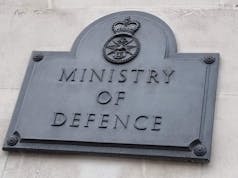The Ministry of Defence’s Modernising Defence Programme must address the challenges presented by the resurgence of state-based threats and be supported by a fully-funded and sustainable financial settlement, says a report published by the Defence Committee.
The report, entitled Beyond 2 per cent, has been produced ahead of the anticipated release of ‘high-level findings’ by the MDP, towards the end of June. It examines how the process has proceeded and highlights areas, including capability, commercial practices, recruitment and international partnerships, which the Committee expects the review to consider.
The report explores how the MDP had its origins in the decision taken in mid-2017 to initiate the National Security Capability Review (NSCR) in response to the development of new and intensified threats facing the United Kingdom.
The aim of the NSCR was to ‘refresh’ the findings of the 2015 Strategic Defence and Security Review and look again at capabilities across 12 broad areas of national security policy, including Defence. However, the ‘fiscally neutral’ nature of the NSCR meant that any new resources applied to some aspects of national security would entail reductions in resources available to others – even though the emergence of new threats had not been accompanied by the disappearance of pre- existing ones.
The report concludes that the only solution is to move spending on Defence closer to 3% of GDP – approaching the level of investment made by the UK from the end of the Cold War until the mid-1990s. This could produce a long-term settlement providing strategic and financial stability. Although further reform within the scope of the MDP will be necessary, for the MoD to prove that it can be the ‘responsible owner’ of a new settlement, it should not be based on elusive and ambitious ‘efficiency savings’ in order to make ends meet.
Dr Julian Lewis, Defence Committee chairman, said:
“We hope that our report will assist in sparking debate and focusing minds on priorities that should be considered by the Modernising Defence Programme. The Secretary of State was right to remove Defence from the National Security Capability Review which would otherwise have resulted in further disastrous cuts to the Armed Forces, and we endorse his efforts to obtain a better settlement for Defence.
The Government now needs to look beyond the two per cent minimum on Defence spending, and begin moving towards a figure of three per cent, to place our defence policy on a sustainable basis to meet new threats and fill existing financial ‘black holes’. Defence is constantly described as the first duty of government. The MDP is the government’s opportunity to show that it means what it says.”












It’s quite astounding just how much support has been gathered for an increase in Defence spending, it seems the number one department after health, however with the country still running a deficit and government’s commitment to massively increase health spending it seems there is zero chance of a significant increase in Defence spending.
It’s also very difficult to justify increasing Defence spending to Defend the EU’s eastern boarder when that same EU seems to take every chance it can get to F**k the UK in Brexit negotiations. 2% is easily enough to defend the UK.
I applaud Julian and other members of the committee. MDP is round the corner, Trump & Mattis are piling on the pressure. If there is no change at the MDP then that is it until May & hammond are gone. If they go because Corbyn & Co are returned then all bets are off as they’ll do irrevocable damage to armed forces. If it’s because of a Tory coup then maybe there’s hope.
So Ian what is the purpose of our defence spend. To defend ourselves and our friends or guarantee we keep the number one spot as the USA’s favourite prison b…. ?
The Tory’s talk a good game on Defence but have never done anything but cut its Budget. Most of the most devastating Defence rounds have been under Tory governments.
Not to get too political, but that’s because Labour governments destroy the economy, forcing said cuts.
Damn right.
Martin, that is, not this rubbish ‘ but that’s because Labour governments destroy the economy’. The crash of 07/08 was due to a banking crisis, because of banks the tories said were still too regulated, not because Labour ‘destroyed the economy’ which was recovering in 2010, before the tories ideological austerity programme put it in reverse.
https://www.theguardian.com/business/2010/oct/26/gdp-growth-osborne-construction
This is the only country onvolved in this where the blame has been placed on government overspending, because of tory lies and the complicity of the right wing press. Cobblers about ‘Britain is bankrupt’ (not possible for a country in control of its own currency) and ‘we’d be like Greece’ (not possible for the same reason) were bandied around. Funny, though, that both Osborne & Hammond seem to be able to find large amounts of money down the back of the sofa when politically expedient, to postpone a rise in fuel duty, or to bribe the Unionists. Meanwhile the UK national debt has ballooned under the tories, and the 2% devoted to defence was only achieved by counting military pensions as part of the defence budget – typical tory disingenuousness.
Wow, that escalated quickly (I may have poked at the bees nest a little bit on purpose to see what popped out). On the topic of defence spending, I think we can all agree that an increase is needed. I think I’m going to step out of the argument though as I can see I’ve raised your hackles HF, it wasn’t my intention and I’d appreciate a little more class in rebuttal replies.
Ok, chuck, you certainly provoked me but what I posted is correct. Sorry if you felt my response lacked a bit of class, btw.
It’s strange when Gordon was chancellor he was quite fiscally conservative, as soon as he became PM spending increased dramatically in the 2 years before the crash. I do agree I don’t think the Tories would have prevented the crash either, but the large commitments in spending Labour had already been committed would have prevented the deficit ballooning so large.
I still can’t understand how we have a huge tax burden but huge deficit at the same time, the welfare state is too generous and there a lot of extremely wealth people not paying their fair share and getting away with it. The middle class tax burden must be around 40% there is no way the rich are paying anywhere near that which is a joke.
If you read Blair’s autobiography he claims he told Brown in 2004 that government spending was out of control and it needed to be reigned in.
Brown ignored him
It was Labour under Gordon Brown who took the U.K. into deficit, splurging money to save banks when they should have been left to market forces. They continued to splurge on public sector spending as government tax receipts were reduced due to the crash. As a result the Coalition inherited both a phenomenal debt mountain and a ongoing annual deficit.
Since then through meagre austerity measures, the deficit has been reduced and is on target to be wiped out. But only once has that occurred and HMG is running a surplus can we start to pay down the huge debt accumulated by Labour.
Now the Torres could have ended the deficit sooner and not added to the debt, but that would have involved the kind of savage austerity measures inflicted upon the poor people of Greece.
As it is the U.K. debt to GDP is still in the same league as Greece’s and we could easily have gone bankrupt – or rather gone cap in hand to the IMF for a bailout (as a previous Labour government did in the 70’s) – if institutions had stopped lending to the U.K. However as the IMF has begrudgingly acknowledged, the combination of austerity and the previously untested practice of quantitative easing turned things around for the U.K. economy. (So much so that the ECB very late in the day adopted QE too.)
He had to pump money into saving the banks, otherwise the UK banking industry would have collapsed.
No ATMs, all banks closed, no wages paid, no electronic payments and so on.
The whole economy would have shut down.
The problem was he paid to much for the share value of the banks rescued, HBOS and RBS.
Maybe, just maybe, all this talk of 3% may mean we get 2.5% – which I’m sure all of us would accept. I would like the debate to move away from % of GDP though and talk instead of spending in absolute terms and what we spend it on.
Trump may well turn into the our armed forces’ best friend with all the pressure coming from his administration on defence spending.
MDP will be very interesting indeed.
I agree, even getting up to 2.25 would be a substantial increase above what we’ve come to expect and would (hopefully) go a fair way to reduce some of the retention/attraction issues surround service members and their families
Just to throw some petrol on the fire, Gordon Brown said in 2006 that the city of London was a bout to enter a new golden age. Two years latter the UK banking industry collapsed.
The regulatory banking framework which supervisored UK banking was created by the Labour government in 1998. They boasted that a UK banking collapse was impossible due to the regulatory that they created.
The severity of the UK banking collapse was made far worse by the Labour governments poor banking regulation.
That would be the same Gordon Brown who “ended boom and bust” (presumably by ending all booms and just retaining the bust)?
Yes thats the chap.
Someone described Gordon Brown at the time as a person who sets your house on fire then turns up with a bucket of water to help.put it out.
Have you all forgotten, Gordon Brown “saved the World” ? He said so himself in the house of commons 🙂
“The severity of the UK banking collapse was made far worse by the Labour governments poor banking regulation”
The conservatives voted with the government in all parliament votes on banking deregulation.
There is a reason T Blair is hated by Labour voters and it isn’t just the Iraq war. He’s a neocon through and through.
Labour was in government from 1997 to 2010, they were responsible for banking regulation during that period. Let’s not try and shift the blame to other political parties who were not in government.
They made all the claims about a balanced budget over the economic cycle, no more boom and bust, a golden age for the city and so on.
They took the credit when things were going well, yet it was somebody else’s fault when the manure hit the fan.
Nobody is blaming anybody else.
You said this “The severity of the UK banking collapse was made far worse by the Labour governments poor banking regulation”
While that is true, you’ve been on a tirade of comments here and above without telling the whole story though at all, any impartial person talking about 2008 would take and look at all everything or at least mention them, you haven’t so I will.
The deregulation of the financial sector including banks began in the late 80’s under a conservative governent, when Labour got into government the tories pushed from the opposite benches that the economic policies they implemented should not be removed as they were working, it was working so why would T Blair or Gordon Brown all of a sudden take on the banks, and if anyone thinks a conservative leader in government would start tearing into one of Thatchers baby you could not be more deluded.
You said “The regulatory banking framework which supervisored UK banking was created by the Labour government in 1998”
That framework was a labour tinted rework of the conservative banking framework that was started in the 80’s under Thatcher.
If anyone is going to talk politics please at least know your stuff.
The myths that somehow Labour “crashed the economy” has been debunked by many over the years.
Also people above saying labour always leaves the economy in ruins, do yourself and your knowledge a favour, remember google is your friend, google ‘labour and conservative economic history who is better’ or ‘who’s better for the economy labour or conservatives’
What you will find that since the Second World War labour have always paid off more debt and grown the economy more than the conservatives, that’s a fact, it isn’t in any doubt. Yes they have been in government and made mistakes and been involved in some shitstorms as has the conservatives, but the facts are there, paid off more debt and grown the economy more.
We will be lucky to see defence spending rise marginally above 2%.
Talk of 2.5% or 3% is pure fantasy.
No votes in defence expenditure.
I think we may see some “covering” of certain things but no actual increase. The NHS announcement probably just torpedoed anything better, including any tax rises to cover defence. Politically two rises would be disastrous.
It depends who is taxed…
Presumably once we are outside the EU it will be far easier to tax the profits of giants like Google, Amazon, Apple, etc, etc who currently redirect their profits to another EU country to minimise what they pay.
In the real world it’s not about tax rates it’s how much tax revenue to raise that’s key
Punitive tax increases on wealthy people raise less tax revenue than more reasonable rates.
EU corporate tax policy are a scandal.
You can be sure one of the items on Macron-Merkel’s agenda is the setting of a common corporate tax rate across the EU/Eurozone. They’re already looking to give the planned EU Chancellory tax raising powers.
Which is why they’re fearful of Brexit, and the U.K. undercutting them on corporate tax.
As always people focus on procuring new equipment for the military, but the real crisis is the manning levels.
Highly trained military personnel are leaving UK military in there droves and are not being replaced.
I was recently talking to a British army UAS pilot and apparently the Australian army are offering huge tax free bounties for personnel to transfer.
We need to be paying and rewarding our military much more than currently. Minimum wage for trained military personnel should be at least £25k plus a generous bonus scheme for long service and other assistance packages.
Completely agree. Need to sort the pay grades out too, I know a Sapper who went up to LCpl and was £400 or so worse off p/a due to mess fees etc.
I doubt this would happen. Our politicians would rather give a fortune to India (who doesn’t need it) than spend it on our forces. I’m confident that 80% – 90% of the British public would support a big cut in the foreign development budget in favour of the money being spent in the UK. It’s a shame our politicians are so out of touch!
[…] in Europe”. Despite this, she did not comment directly on defence spending. She highlighted the Defence Selected Committee’s call for for defence spending to rise to 3% of GDP, as well as Tobias Elwood’s call for 2.5%. Despite […]